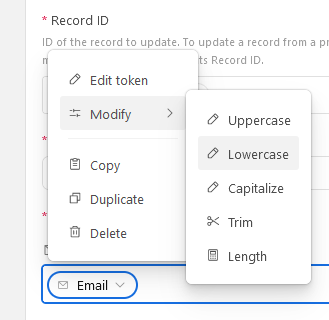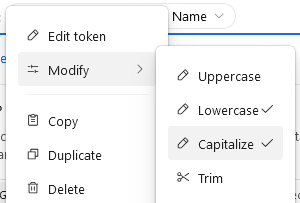Hi,
Is there ways to (i) force an email address collected through a Airtable form and to (ii) convert an email address coming in from an external system to lower case?
We use Airtable as a CRM/ERP system, hence we register contacts and events for those contacts (for the purpose of this question). The first touch point is an Airtable form, after which the contact is directed to a Calendly event. The one piece of information connecting these inside Airtable (and a basis for a lot of automations) is the contact's email address.
Yesterday I debugged an automation, and realised it had not found the right contact due to a capital case beginning of the email in the contact's data. Had not thought about these (naturally) being case sensitive.
I see that one can user lower() in formulas, but would not want to use several "parallell" fields/columns for this. I tried to use lower() to encapsulate the data field in the automation, but that didn't seem to work.
Suggestions how to do this?
Rgds,
Björn





